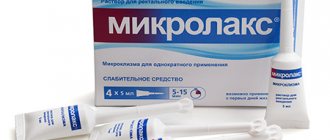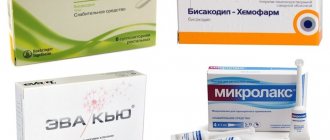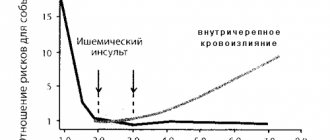General analysis (coprogram)
- 2 days before collecting biomaterial, discard tomatoes, tomato juice, pasta, beets, blueberries, pomegranates and other vegetables and fruits containing dyes.
- For 3 days, stop taking antibiotics, laxatives, and drugs that cause changes in intestinal motor function. Do not use rectal suppositories, ointments, or oils.
- Do not eat exotic fruits, vegetables and foods that are not typical for your diet as a whole. Do not overeat, exclude fatty, spicy, pickled foods.
- If you are taking medications containing iron and bismuth, they must be discontinued 2 days before stool collection.
Attention. After radiography with a contrast agent (barium), collect feces for coprogram no earlier than 7–10 days after the examination. Women are not recommended to take the test during menstruation.
Procedure for collecting stool:
Collect stool for examination in the morning, on an empty stomach. If this is difficult, you can prepare the sample in advance, but no more than 8 hours before submitting it to the laboratory. In this case, store the sample in the refrigerator (do not freeze!).
- Carry out hygiene procedures and first urinate in the toilet and flush.
- Place sterile paper (or an ironed sheet) or a disposable plastic plate in the bowl or bottom of the toilet and perform a bowel movement.
- Collect feces immediately after defecation from different places in a single portion with a special spoon mounted in the lid of a plastic container in a volume of 1–2 g (no more than 1/3 of the container’s volume). Avoid contact with urine and pieces of undigested food.
- Deliver the sample to the laboratory on the day of collection. Before delivering the sample to the laboratory, the container with stool should be kept in the refrigerator at 2–4 °C. Storage at 2-8 °C is allowed - up to 72 hours.
- Stool examinations should be carried out no earlier than 3 days after the enema, x-ray examination of the stomach and intestines, or fibrocolonoscopy.
- A few days before the study, you should not take the following medications: activated carbon, laxatives with a prokinetic effect (belladonna, pilocarpine), iron, copper, bismuth, and also use fat-based rectal suppositories, castor and vaseline oils).
- Before defecation, it is necessary to thoroughly clean the external genitalia and anus with soap and water, followed by rinsing with water.
- Defecate in a clean, dry container (bowl, night vase).
- After defecation, feces must be collected in a clean, disposable container with a screw cap and a spoon in an amount of no more than 1/3 of the container’s volume (the container must be purchased in advance at a pharmacy or obtained from a medical center).
- Prevent the ingress of water, blood, urine, saliva, pus and other foreign impurities into the biological material, which are likely to distort the analysis results.
- The container with the contents must be tightly closed and delivered to the medical center no later than 4-5 hours before the study.
Features of preparation for testing stool for Helicobacter pylori:
- A month before donating stool, stop taking antibiotics; proton pump inhibitors (omeprazole, lansoprazole, pantoprazole, rabeprazole, esomeprazole); 2 weeks before bismuth preparations (de-nol).
- For three days, do not drink alcohol, foods high in fiber (carrots, cabbage, bran), and also that can lead to coloration of stool
- (beets, drinks with dyes).
Features of preparation for donating stool for occult blood:
- Three days before the examination, it is necessary to avoid taking medications containing ascorbic and acetylsalicylic acids, non-steroidal anti-inflammatory drugs, and iron-containing drugs.
- Avoid drinking alcohol 48 hours before the test.
- You should not collect stool during or within 3 days after your menstrual period, and you should not donate stool if you have hemorrhoidal bleeding or if there is blood in the urine.
- Three days before the examination, exclude from the diet meat and fish dishes, offal, green vegetables, apples, pomegranates, white beans, spinach, horseradish, cauliflower, broccoli, radishes, bell peppers, melon (when conducting the Gregersen test, during the study stool using immunochromatography; compliance with dietary restrictions is not required).
- Three days before the examination, it is necessary to refrain from brushing your teeth, since even a small amount of blood released when the gums are damaged can distort the examination result.
Features of preparation for testing stool for dysbacteriosis:
- Before defecation, the vessel or night vase must be washed thoroughly with soap and a sponge, rinsed repeatedly with tap water, and then doused with boiling water and cooled; treating the vessel with synthetic detergents is unacceptable.
- 3 days before collecting stool, it is necessary to follow a diet that excludes the intake of foods that enhance fermentation processes in the intestines and lactic acid products, as well as alcohol and bacterial preparations (containing bifidobacteria, lactobacilli, E. coli).
Features of preparation for donating stool for scatological examination (coprogram):
4-5 days before submitting stool for scatological examination, you need to stop taking enzyme preparations and start following a special diet, which includes:
- dairy products;
- mashed potatoes;
- lean meat;
- various cereals;
- soft-boiled eggs;
- fresh fruits;
- white bread with butter.
Analysis of stool for worm eggs, protozoan cysts, elastase-1, calprotectin and lactoferrin does not require special preparation, but must be taken subject to the general rules for collecting stool for analysis.
Dysbacteriosis, intestinal group
To obtain the correct result, material for research is taken before the start of antibacterial therapy or in the intervals between courses of treatment, but not earlier than 2 weeks after its completion.
Attention Do not collect feces from diapers. For infants, collect material from a sterile diaper or pre-ironed onesies. If liquid feces are collected, it can be collected by placing an oilcloth under the baby.
Collection rules
- Feces should be collected in the morning, on an empty stomach.
- Carry out hygiene procedures and first urinate in the toilet and flush.
- Place sterile paper (or an ironed sheet) or a disposable plastic plate in the bowl or bottom of the toilet and perform a bowel movement.
- Collect feces immediately after defecation from different places in a single portion with a special spoon mounted in the lid of a plastic container in a volume of 1–2 g (no more than 1/3 of the container’s volume). Avoid contact with urine and pieces of undigested food.
- Deliver to the laboratory on the day of collection.
The sample can be stored for no more than 2 hours at room temperature; no more than 6 hours at 2-8 °C, more than 6 hours - frozen.
Protozoa and helminth eggs
To obtain the most reliable results, three stool examinations are recommended with an interval of 3–7 days.
Attention You cannot collect stool earlier than 3 days after an enema, an X-ray examination of the stomach and intestines, or a colonoscopy. The day before, do not take laxatives and drugs that affect intestinal motility (belladonna, pilocarpine), activated carbon, iron, copper, bismuth, barium sulfate, use fat-based rectal suppositories. Women should not collect stool during menstruation.
Collection rules
- Feces should be collected in the morning, on an empty stomach. If this is difficult, you can prepare the sample in advance, but no more than 8 hours before submitting it to the laboratory. In this case, the sample should be stored in the refrigerator (do not freeze!).
- Carry out hygiene procedures and first urinate in the toilet and flush.
- Place sterile paper (or an ironed sheet) or a disposable plastic plate in the bowl or bottom of the toilet and perform a bowel movement.
- Collect feces immediately after defecation from different places in a single portion with a special spoon mounted in the lid of a plastic container in a volume of 1–2 g (no more than 1/3 of the container’s volume). Avoid contact with urine, water and pieces of undigested food;
- Deliver to the laboratory on the day of collection.
Rules for collecting stool for studying intestinal microflora (dysbacteriosis)
General requirements:
Use only disposable containers provided by the laboratory. The container is sterile, does not require pre-treatment and is completely ready for use. Feces should be collected in the morning - after natural bowel movements. Sample preparation in advance is not permitted. Freezing or storing the sample in the refrigerator is not permitted. All examined patients, 1-3 days before taking the sample, should be on a diet that excludes the intake of foods that enhance fermentation processes in the intestines and lactic acid products, as well as alcohol and bacterial preparations (containing bifidobacteria, lactobacilli, E. coli). Conducting research and collecting material before starting treatment with antibiotics, antiseptics, antifungal drugs or no earlier than 2-3 weeks after the end of the course of treatment.
What you should definitely do:
Thorough toileting of the external genitalia and anal area. Pre-urinate. It is not recommended to collect feces from the toilet. Defecate in a dry, clean container - a vessel or a “night vase”. First you need to rinse well with soap and a sponge, rinse repeatedly with tap water, and then rinse with boiling water and cool. It is not permissible to treat the vessel with synthetic detergents. Transfer the stool sample with a special spoon mounted into the lid of a sterile container in an amount of no more than 1/3 of the container’s volume. Close the lid carefully.
The following must not be allowed:
You cannot conduct a stool examination earlier than 2 days after an enema, an X-ray examination of the stomach and intestines, or a colonoscopy. All examined patients, 1-3 days before taking the sample, should be on a diet that excludes the intake of foods that enhance fermentation processes in the intestines and lactic acid products, as well as alcohol and bacterial preparations (containing bifidobacteria, lactobacilli, E. coli). On the eve of the study, you should not take medications, including: laxatives; Activated carbon; preparations of iron, copper, bismuth; use fat-based rectal suppositories. Do not allow urine or water into the sample. Conduct stool examinations in women during menstruation.
Failure to comply with the rules for collecting, timing and storage of samples obtained for research leads to a negative result.
Bacteriology
To obtain a reliable result, material for research is taken before the start of antibacterial therapy or in the intervals between courses of treatment, but not earlier than 2 weeks after its completion.
- 3-4 days before the study, it is necessary to stop taking laxatives, castor and petroleum jelly and stop administering rectal suppositories.
Attention: Feces obtained after an enema, as well as after taking barium (during an X-ray examination), are not suitable for research.
Collection rules
- Feces should be collected in the morning, on an empty stomach.
- Carry out hygiene procedures and first urinate in the toilet and flush.
- Place sterile paper (or an ironed sheet) or a disposable plastic plate in the bowl or bottom of the toilet and perform a bowel movement.
- Collect feces immediately after defecation from different places in a single portion with a special spoon mounted in the lid of a plastic container in a volume of 1–2 g (no more than 1/3 of the container’s volume). Avoid contact with urine and pieces of undigested food.
- Deliver to the laboratory on the day of collection.
Feces for general analysis, helminth eggs, occult blood
Feces are collected in a sterile plastic container in the volume of an incomplete measuring spoon of the container from various places in a single portion of freshly collected feces. Before taking the material, a thorough toilet of the external genitalia and anus is performed. Urine and genital discharge should be avoided. Before taking the test, it is recommended to discontinue medications that affect the processes of digestion and absorption. After an X-ray examination of the stomach and intestines, stool analysis is indicated no earlier than 2 days later. The stool should be independent, without the use of enemas and laxatives.
To examine stool for helminth eggs and protozoa, there should be no stool retention for more than 24 hours.
To test for occult blood, three days before donating stool, meat, liver, sausages, fish, as well as vegetables and fruits rich in iron (apples, bell peppers, spinach, etc.) are excluded from the diet.
PCR studies
Collection rules
- Feces should be collected in the morning, on an empty stomach.
- Carry out hygiene procedures and first urinate in the toilet and flush.
- Place sterile paper (or an ironed sheet) or a disposable plastic plate in the bowl or bottom of the toilet and perform a bowel movement.
- Collect feces immediately after defecation from different places in a single portion with a special spoon mounted in the lid of a plastic container in a volume of 1–2 g (no more than 1/3 of the container’s volume). Avoid contact with urine and pieces of undigested food.
- Deliver to the laboratory on the day of collection.
Where should stool analysis be stored until the morning from the evening
Exclusively in the refrigerator compartment. We recommend sending the container immediately after collection. It is advisable to choose special sterile containers.
How to store stool for analysis in the evening:
- Biomaterial must be collected naturally. You cannot use enemas or laxatives for three days. It is prohibited to insert glycerin suppositories. All this distorts the result;
- The feces are immediately transferred to a sterile container. It is unacceptable to use dirty containers or large dishes.
- The lid must be screwed on tightly. Matchboxes are a thing of the past. Only use a sealed container.
- We recommend placing the jar on the middle shelf. Remove other products further. The compartments in the refrigerator door where lens solution, potassium permanganate, and iodine are stored are not suitable.
It is advisable to protect the container from sunlight. The jar can be wrapped in a dark bag. Place in another bowl. It will help lock the smell inside securely. Another important point is that the contents will not scare household members.
Culture for microflora and sensitivity to antibiotics
3-4 days before the study, it is necessary to stop taking laxatives, castor and vaseline oil, and stop administering rectal suppositories. Feces obtained after an enema, as well as after taking barium (during X-ray examination) are not accepted for examination!
Attention: Feces are collected before starting treatment with antibacterial and chemotherapy drugs.
Collection rules
- First urinate in the toilet and flush.
- Place sterile paper (or an ironed sheet) or a disposable plastic plate in the bowl or bottom of the toilet and perform a bowel movement.
- Collect feces immediately after defecation from different places in a single portion with a special spoon mounted in the lid of a plastic container in a volume of 1–2 g (no more than 1/3 of the container’s volume). Avoid contact with urine and pieces of undigested food.
- Deliver to the laboratory on the day of collection. If it is impossible to quickly deliver the sample to the laboratory, you can store it in the refrigerator for no more than 4 hours at 2-8 °C.
Preparation and rules for collecting stool and urine analysis
To check the functioning of the gastrointestinal tract and urinary system, the doctor sends us to examine stool and urine tests. There are different options for taking these tests, depending on what the doctor wants to know. Therefore, do not rush to immediately run to the laboratory if you complain of frequent urination, lower back pain or abdominal discomfort with a jar of urine or feces, but contact a specialist who will recommend the right type of study and notify you on the spot about preliminary preparations .
But if you still go to the laboratory first, read this information - it will help you not make mistakes when preparing for the study. A coprogram is a study of stool to diagnose diseases of the digestive system. In order for the analysis to be correct, you need to adhere to certain rules when preparing for it and during the fence itself. If stool is collected with errors, the analysis may reveal undigested food, fats, starch, and the doctor may make an invalid diagnosis. That's why:
- For analysis, bring “fresh” feces without foreign substances (water, urine), collected in a clean container with a lid (for example, a container that can be purchased at almost any pharmacy).
- 3 days before the study, stop taking medications that can change the structure and color of stool (laxatives, enzyme preparations, iron supplements, sorbents, rectal suppositories, oils, enemas).
- Stick to a diet for 4-5 days (do not eat foods that contribute to gas formation, constipation or loose stools).
- You cannot take a stool test after an X-ray examination of the intestines.
- do not take the test during menstruation, as blood may get into the test material (and then, unfortunately, the doctor may suspect internal bleeding, rectal fissures, or more serious problems). If, however, the analysis cannot be postponed for several days, perform a thorough toilet of the genital organs, install a tampon, wash the external genitalia again and begin collecting the analysis.
- Deliver the sample taken within 1-2 hours, at room temperature, do not freeze, do not overheat.
To study the intestinal microflora, feces are examined for dysbiosis
The collection rules correspond to the coprogram, but have several features. A stool test for dysbacteriosis is taken before starting antibiotics.
- The analysis must be collected in a sterile container (vessel). To do this, wash the container with a disinfectant solution, rinse with boiling water, and dry.
- put part of the stool (up to 1/3 of the volume) into a clean disposable container with a lid.
- deliver to the laboratory no later than 3 hours; do not freeze.
To identify helminths (worms) in the body, feces are prescribed for helminth eggs.
The preparation is the same. The only difference is that for testing, feces must be taken from several different places. Fill the container halfway, close, and deliver to the laboratory.
Urine is a biological fluid with which metabolic products are removed from the body. Its analysis is very important in the diagnosis of many diseases of the urinary and excretory system.
Failure to comply with the rules for taking a urine test can lead to an incorrect diagnosis. So:
- We collect morning urine on an empty stomach. We flush the first 1-2 seconds into the toilet, then 50-70 ml. in a clean, sealable container (can be purchased at almost any pharmacy or laboratory).
- deliver no later than 1.5-2 hours to the laboratory.
- on the eve of taking a urine test, do not consume foods and medications that can distort the color and content of urine (beets, carrots, citrus fruits, blueberries, vitamins, diuretics, mineral water...)
- per day - alcohol is strictly contraindicated, avoid any stress (intense physical, emotional), as protein may appear in the urine.
- The container for analysis must be sterile; if necessary, rinse with boiling water and dry.
- Do not take a urine test during menstruation, as blood cells may appear in the urine. But if, nevertheless, the study cannot be postponed for a while, perform a thorough toilet of the genital organs, install a tampon, wash again, and then collect the analysis. When visiting a doctor, inform about menstruation during the period of urine collection.
- If cystoscopy (examination of the bladder) was performed, postpone the test for 5-7 days.
In case of changes in the general urine test, to identify or exclude kidney diseases, the doctor prescribes a urine test according to Nechiporenko .
The preparation rules are the same, except that only the “middle portion” is used for analysis, that is: the first portion of urine into the toilet, then 20-30 ml. - into the container, and finish urinating into the toilet too.
To determine the concentration of urine, the doctor may recommend a Zimnitsky test (24-hour urine)
- During the day, 8 portions of urine are collected.
- For this you will need 8 containers with a volume of 1.5-2 liters. each. In advance, glue pieces of paper with the specified period of time onto all containers (containers, jars).
- During the day - normal diet and drinking
- Do not take diuretics
- At 6 am the patient empties into the toilet, the first container collects urine from 9.00 to 12.00, the second from 12.00 to 15.00, and so on..., from 3.00 to 6.00 am - in the eighth. At night, set an alarm for every 3 hours so you can urinate, and finish collecting at 6:00 am the next day.
- Store all containers in the refrigerator and deliver to the laboratory in the morning.
- If there was no urine in a three-hour period, the container is delivered empty.
A daily urine test is prescribed by a doctor to determine the amount of glucose and other substances in the urine.
Preparation is the same as for general analysis.
But for this you will need a large, clean container (perhaps a 3-4 liter jar with a lid) and, starting, say, at 7.00 in the morning, place all portions of urine, except the first, in this container (you can urinate in a smaller container and drain it) until 7:00 am the next day. All this time, the container is stored in the refrigerator at a temperature of 4-8 degrees (but do not freeze), the next morning, shake all the contents thoroughly, pour out 100-120 ml. and deliver to the laboratory, indicating the total volume of urine per day.
The article was prepared by ACMD-MEDOX specialists
For carbohydrates
- Carry out hygiene procedures and first urinate in the toilet and flush.
- Place sterile paper (or an ironed sheet) or a disposable plastic plate in the bowl or bottom of the toilet and perform a bowel movement.
- Collect feces immediately after defecation from different places in a single portion with a special spoon mounted in the lid of a plastic container in a volume of 1–2 g (no more than 1/3 of the container’s volume). Avoid contact with urine and pieces of undigested food.
- Deliver the sample to the laboratory within 4 hours.
Attention Storing a stool sample for more than 4 hours, including in the refrigerator, is not allowed.








